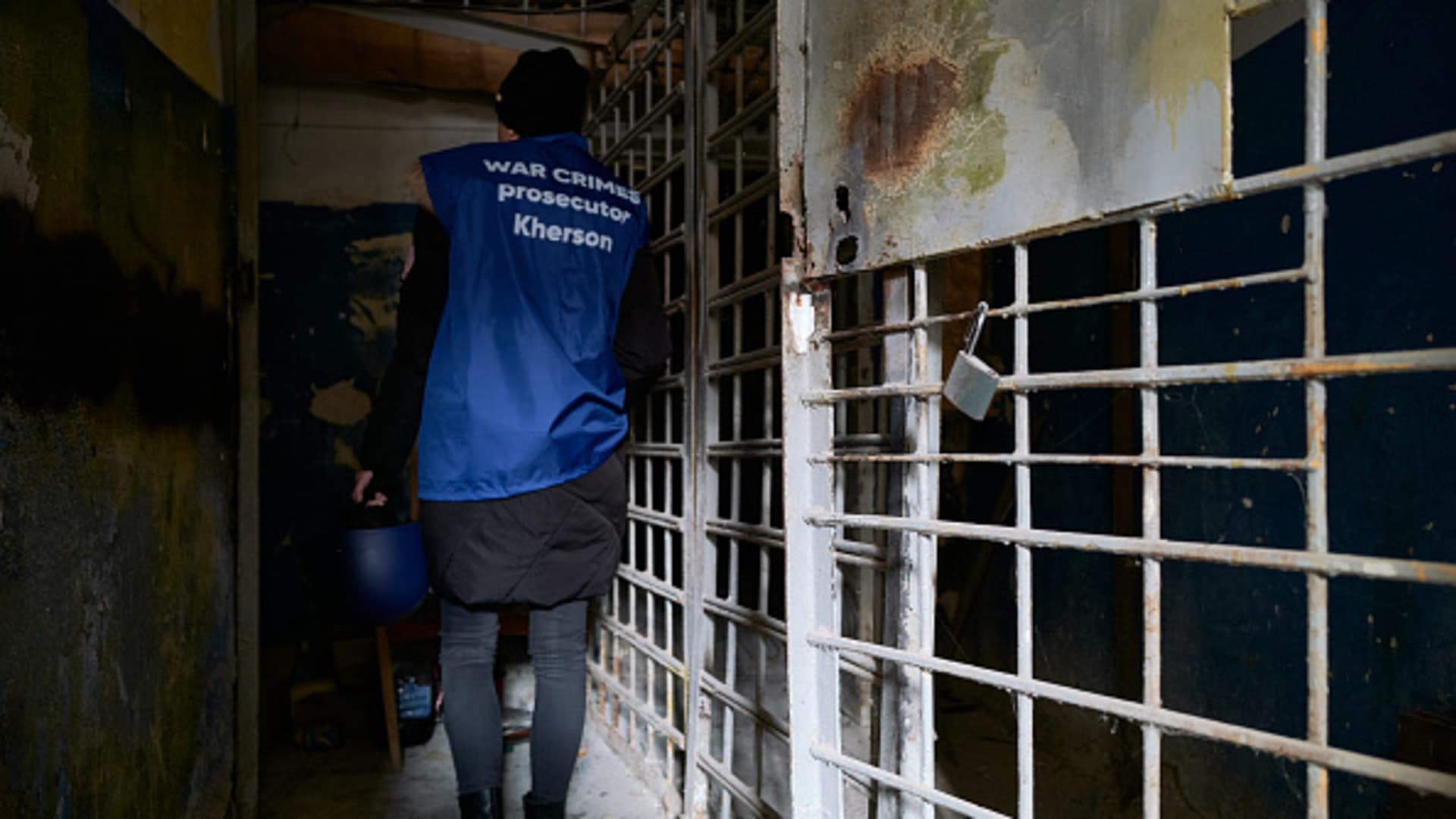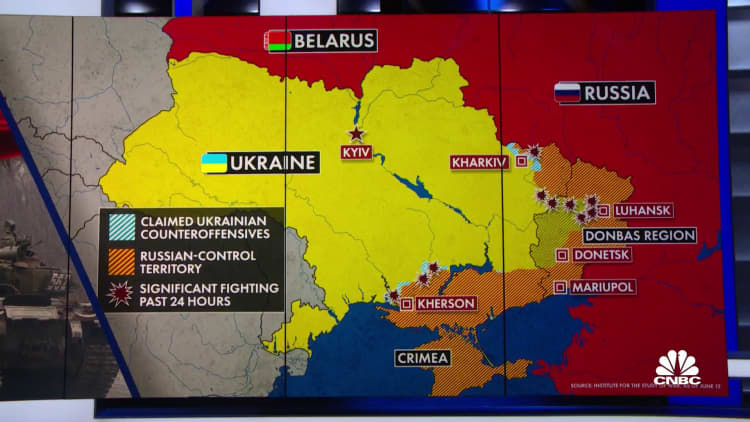
A photo of a hallway in a building where Russian forces established a torture center in Kherson.
Photo: Harvey Presence
Editor’s note: The following article contains graphic material detailing reports of torture of people in Ukraine.
WASHINGTON — The identification of Russian forces who carried out various forms of torture and sexual violence on prisoners in the Ukrainian city of Kherson is “well underway,” according to a team of international lawyers investigating alleged war crimes.
Kherson, once home to more than 280,000 people, was the first major city to fall to Russian forces during Moscow’s full-scale invasion of Ukraine. After months of Russian occupation, the southeastern city was liberated in November by Ukrainian forces, which reopened Kherson to international humanitarian and investigation teams.
“It is important that we are assisting the Ukrainian Office of the Prosecutor General not only with bringing the perpetrators of these severe sexual crimes to justice but also with building successful cases against those who gave the orders,” Wayne Jordash, an international human rights lawyer and managing partner of the law firm Global Rights Compliance, told CNBC.
“The pattern that we are observing is consistent with a cynical and calculated plan to humiliate and terrorize millions of Ukrainian citizens in order to subjugate them to the diktat of the Kremlin,” added Jordash, who leads a Mobile Justice Team, a group of international lawyers and investigators supporting Ukraine’s prosecutor general’s office.
The Mobile Justice Team is one component of the Atrocity Crimes Advisory Group, which is funded by the State Department, European Union and the U.K.’s Foreign, Commonwealth and Development Office.
According to the new evidence gathered by the investigation, at least 36 victims described the use of electrocution during interrogations, and of those cases nearly half involved electrocution of genitals. Others detailed incidents where genital mutilation was threatened and at least one person said they were forced to witness the rape of another detainee by a foreign object.
KHERSON, UKRAINE – JANUARY 04: Officers of the War Crimes Prosecutor office and police officers investigate war crimes committed by the Russian occupying forces on the local civilian population in the basements and rooms of Ukrainian penitentiary buildings on January 4, 2023 in Kherson, Ukraine. According to the Kherson police, local residents were held in cells and rooms for days, tortured with electricity, batons and forced to write Russian patriotic texts. Kherson was the only regional capital captured by Russia since the invasion and it was liberated by Ukraine late last year. (Photo by Pierre Crom/Getty Images)
Pierre Crom | Getty Images
Other techniques commonly used against detainees in the more than 35 torture chambers in Kherson were suffocation, waterboarding, severe beatings and threats of rape, according to the evidence gathered.
In March, the Mobile Justice Team reported that at least 20 torture sites in Kherson were directly financed by the Kremlin and managed by various Russian security agencies, including Russia’s Federal Security Services, known as the FSB, the successor to the KGB.
The Kremlin has previously denied that its forces committed war crimes or deliberately targeted civilians. The Russian Embassy in Washington, D.C., did not immediately respond to CNBC’s request for comment.
Military, former military, law enforcement, volunteers, activists, community leaders, medical workers and teachers were among those held prisoner at the Russian-operated Kherson torture centers.
“What we are witnessing in Kherson is just the tip of the iceberg in Putin’s barbaric plan to obliterate an entire population,” said Anna Mykytenko, a senior legal adviser for Global Rights Compliance.
“The true scale of Russia’s war crimes remains unknown, but what we can say for certain is that the psychological consequences of these cruel crimes on Ukrainian people will be engrained in their minds for years to come,” Mykytenko added.

